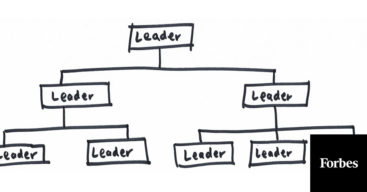Originally published July 31, 2020 on Forbes
by Doug Sundheim
Many of us feel stuck these days. The Covid-19 pandemic has upended our personal and professional lives. Certainties that we used to take for granted are now uncertain. Routines that gave us comfort are gone. Many plans and projects that we had lined up have been scrapped or derailed. And while we were troopers in March and April when the situation felt more temporary, now in the late summer we’re feeling exhausted by the daily grind and anxious about what appears to be an extended unclear future.
If you’re feeling stalled, what can you do to begin building forward momentum again?
Here are 4 suggestions:
Embrace gratitude
Being grateful is a counterintuitive but rewarding way to change your perspective. Try this exercise: Take 15 minutes every day for the next week and write down 3-4 different things you’re grateful for. By the end of the week you’ll have a list of 20-30 things that you truly appreciate about your life.
Why is this exercise helpful? Because it interrupts our negativity bias. Simply put, for survival reasons our minds tend to dwell on negative events more than positive ones. Negative thinking in short spurts can keep us sharp and aware. However, these days we’re swimming in too much negativity because it sells. The press, social media, TV, and other online offerings pull us into a vortex of negative thinking and emotions. The gratitude exercise is a simple way to actively interrupt our unwitting addiction to this bias.
Schedule time in your calendar to do this exercise regularly. Reminding yourself often is important.
Let yourself be stuck for a while
Being stuck can be a gift if we’re willing to live with it. Ironically, if we try to get ourselves unstuck too quickly, we can make our problems worse. By acting too fast, we miss important lessons regarding our habitual mindsets and behaviors, some of which themselves may be contributing to our challenges. “The mind is its own place,” English poet John Milton wrote, “and in itself, can make a Heaven of Hell, a Hell of Heaven.” When we worry and catastrophize too much, it undermines our ability to think creatively and expansively about solutions to our problems. If we don’t take the time to understand how our internal viewpoints color our world, we lose personal power and the opportunity to invent a better life for ourselves.
This single insight is at the heart of many world religions and spiritual practices. Buddhism, for example, is founded on the 4 Noble Truths. Summarized simply they are: (1) Life is not ideal, (2) Suffering comes from wanting life to be ideal, (3) Suffering decreases as we loosen our attachment to having everything be ideal, and (4) We loosen our attachment to having everything be ideal by slowing realizing just how crazy this attachment is making us. One of life’s great ironies is that we are at our most powerful to change unwanted circumstances when we accept—and are truly OK with—the fact that our circumstances may not change. There are many books written on this topic. Pema Chodron’s The Places That Scare You is a good one.
Try something new
Certain opportunities have now vanished. New opportunities are emerging. The longer we stare longingly at the vanished opportunities, the less we’re able to see the new ones that are coming into view. The internet is now filled with successful transformations to new businesses, or what have become known as “pivots”. For inspiration and ideas it’s worth poking around to see how others are pivoting to rewarding, viable work.
A great example is Sangria and Secrets with Drag Queens. Before the pandemic the business was an engaging in-person Airbnb Experience. When the pandemic hit the owners were devastated. Money started running low. The team decided to try something online, figuring they could earn a little money. The idea exploded, bringing in $150K in the first month. There are also inspiring stories of people finding new jobs they didn’t realize they could land.
The learning here is to just start moving in a new direction. Don’t try to figure everything out in advance; there are simply too many unknowns these days. Movement leads to more movement. Insights produce more insights. You can course-correct as you go.
Help others get unstuck
Staring at your own challenges gets tedious quickly. Moreover, when you’re so close to them it can be tough to see new paths forward. Often the best thing to do is find a way to take your mind off your problems for a while.
Reaching out to friends and colleagues to be a sounding board for their challenges is a productive way to do that. As long as you’re not doling out unsolicited advice, most people will welcome the connection. Plus it can be very helpful for a number of reasons. First, it allows the other person to get out of their own head (the same thing you need). Second, you’re able to see angles on someone’s problems that they often can’t see. Third, it helps the other person accelerate their own problem solving. Fourth, it gets your mind moving in different and often productive directions as well. It a great win-win: You can’t help another without also helping yourself.
Above all else, when you feel stuck remember this: You don’t have to solve all your challenges immediately. Small steps forward will create a positive sense of momentum. With momentum comes energy, hope, and the promise of a better, brighter future.
All you have to do is get started.



